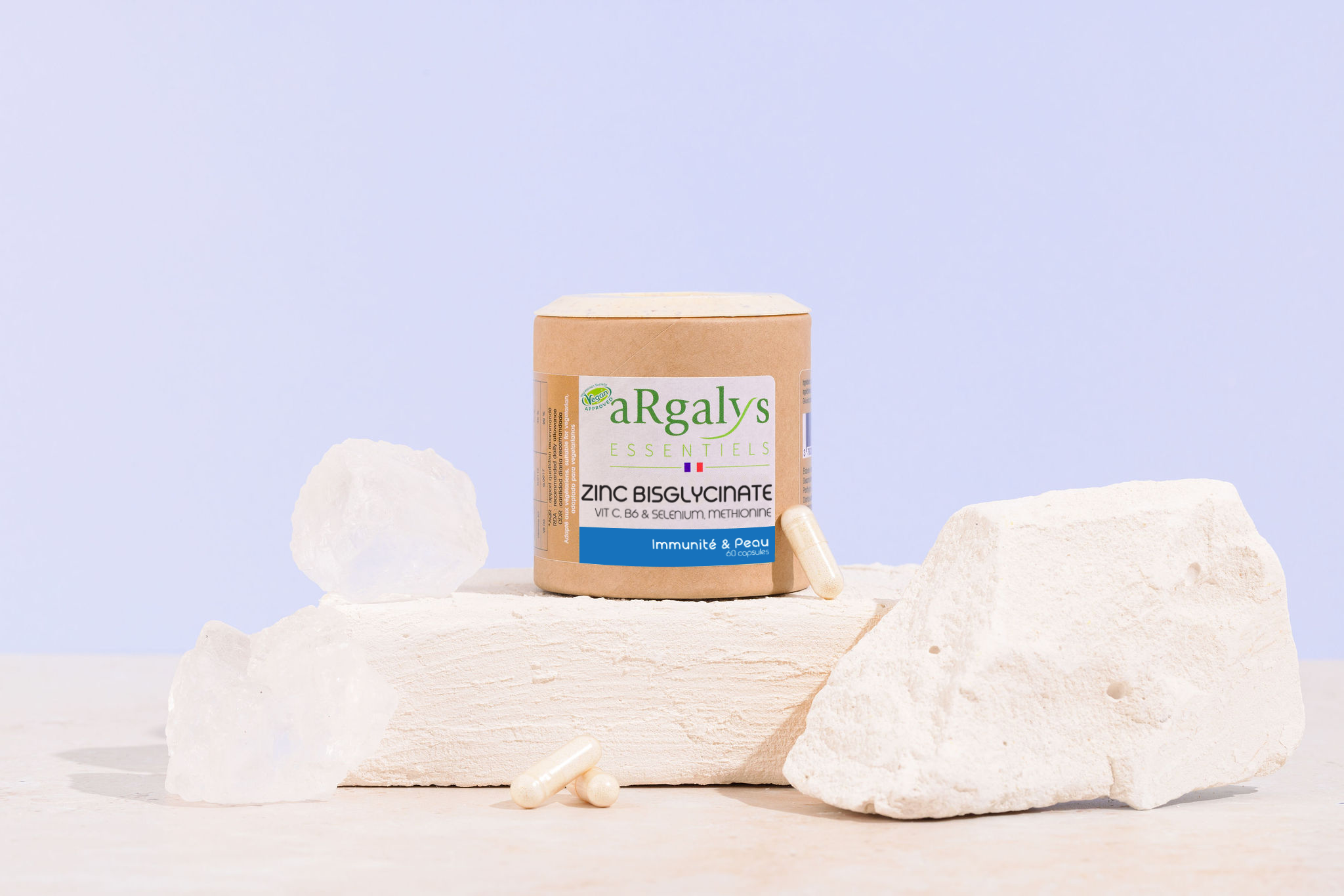Whether you are an amateur or professional athlete, whether you practice bodybuilding, jogging, cycling, football, or any other physical activity with intensity and regularity, optimizing your diet is a key element to maximizing your performance and recovery.
Among the many essential nutrients, Omega 3 (ALA, EPA, and DHA) occupy a prominent place. These polyunsaturated fatty acids, whose importance for health is increasingly recognized, also have specific benefits for athletes.
In this article, we explain the expected benefits of Omega 3 in the context of sports practice.
Omega 3, essential fatty acids.
Omega 3s are a family of polyunsaturated fatty acids present in oily form that are essential for our respiratory, cardiac, and cerebral health, and for limiting inflammation and stress.
Their role was highlighted a few decades ago, but new scientific information is constantly arriving and confirming their importance for health.
Among Omega 3, two forms have superior properties:
- EPA (eicosapentaenoic acid
- DHA (docosahexaenoic acid)
EPA and DHA can be produced by the body from the Omega 3 ALA found in certain vegetable oils. However, the efficiency of this transformation is very different between the two forms. About 10% of ingested ALA is converted to EPA, but only 1% to DHA .
In practice, this means that a balanced diet of oils rich in Omega 3 with around one tablespoon per day covers the body's needs for EPA, but remains insufficient for DHA .
This is why it is recommended to consume foods that are rich in DHA, such as oily fish or certain specific algae.
Omega 3 EPA and DHA are pillars of any routine and dietary hygiene for practicing physical activities, for several reasons that we detail below.
Taking Omega 3 for muscle gain
Omega 3 plays a key role in the development and maintenance of muscle mass .
They increase muscle sensitivity to amino acids and insulin, two key factors in muscle protein synthesis.
Omega 3 also helps preserve muscle mass by reducing post-exercise inflammation that can contribute to muscle breakdown.
A study published in the American Journal of Clinical Nutrition [1] showed that EPA and DHA supplementation could improve the anabolic response of muscles.
For all sports where muscle gain is a direct or indirect objective, such as cross fit, bodybuilding or combat sports, Omega 3 is particularly essential.
Improve recovery after exercise with Omega 3
Post-exercise recovery is a crucial goal for any regular training program. It helps repair microtrauma, prevent injuries, and maintain optimal performance throughout the season.
Omega-3s, particularly EPA (eicosapentaenoic acid) and DHA (docosahexaenoic acid), reduce the production of pro-inflammatory cytokines , which are molecules involved in inflammation and muscle soreness after exercise. By reducing these cytokines, omega-3s reduce post-exercise pain and soreness, promoting faster and more efficient recovery .
A study published in the Clinical Journal of Sports Medicine [2] found that omega-3 supplementation reduces inflammation after exercise.
By integrating omega-3 into the diet of athletes, we improve post-exercise recovery, reduce muscle and inflammatory pain, and allow better management of intensive training.
Omega 3 to prevent inflammatory diseases
Chronic inflammation can impair athletic performance and increase the risk of injury. In the long term, it will also negatively impact motivation and impair performance.
Common inflammatory diseases related to sports include tendonitis, bursitis, plantar fasciitis, iliotibial band syndrome (ITBS), and shin splints (medial tibial stress syndrome).
Activities with high muscular and ligament impacts such as football, basketball, tennis and rugby are particularly affected.
Omega 3s have powerful anti-inflammatory properties that help prevent and manage chronic inflammation.
A study from the European Journal of Clinical Nutrition observed a reduction in pro-inflammatory cytokine levels with regular consumption of Omega 3 [3].
Taking care of your cardiovascular system with Omega-3
For athletes, a healthy cardiovascular system is fundamental to supporting prolonged and intense efforts.
Omega 3s have been shown to have beneficial effects on heart health and efficiency. They help lower triglyceride levels, reduce blood pressure, and improve blood flow.
Blood fluidity is essential for performance. It allows the heart to work less at the same power output, which significantly improves endurance. This is particularly important for any activity requiring significant aerobic effort.
This better blood thinning , on the other hand, explains why it is not recommended to take omega-3 in the week preceding a surgical intervention.
Omega 3 for mental performance
Mental preparation and motivation are now fully integrated into training to perform in competition and achieve goals that require significant mental investment.
Omega 3s, especially DHA , are essential for brain health. They are involved in the structure of neuronal membranes and the transmission of nerve signals. DHA is the main constituent of nerve and brain cells.
DHA supplementation improves cognitive function and concentration. This was highlighted in a study published in Frontiers in Aging Neuroscience, which found that DHA supplementation.
For all competitors, improved focus and increased mental clarity can make a difference. Sports requiring high precision and concentration, such as shooting, golf, and tennis, particularly benefit from these benefits.
What foods should you eat to get your fill of Omega 3 when you're an athlete?
To stock up on Omega 3, there are 3 distinct sources that can be combined!
The first is to consume oily fish , rich in EPA and DHA, such as salmon, mackerel, sardines and herring. However, these fish are now significantly contaminated by heavy metals present in the sea, which has led health authorities to recommend limiting their consumption to twice a week.
The second solution is to consume vegetable oils rich in Omega 3 (ALA) such as rapeseed oil, flaxseed oil, walnut oil, etc. A tablespoon of these oils per day allows the body to produce an acceptable level of EPA, but not enough DHA .
Please note: Omega-3-rich oils are fragile and easily oxidized. They should be purchased in small quantities, stored away from light, and consumed fairly quickly.
The third solution is to accompany the consumption of oils rich in ALA with Omega 3 supplementation and more particularly DHA .
Omega-3 supplements were traditionally derived from filtered fish oils to reduce their heavy metal content. Now, there's a solution that has no impact on marine life, based on algae grown in bioreactors and is free of heavy metals.
Why take an Omega 3 supplement?
Taking Omega 3 supplements has a great benefit for athletes.
Supplementation is an easy and directly measurable solution to obtain adequate Omega 3 levels to optimize performance . It also allows for a dosage that can be adjusted according to the program and combined with a varied diet rich in vegetable oils.
At Argalys, we've developed an Omega 3 supplement containing 250 mg of DHA extracted from algae grown in a bioreactor in France. This source is free of heavy metals and has no impact on marine flora and fauna.
Conclusion
Omega 3s are essential for the entire population at all ages.
They are essential for athletes because of their multiple benefits on muscular, cardiovascular and mental tone .
A diet rich in Omega 3, supplemented with a quality supplement, helps optimize muscle and cardiac performance , improves recovery and focus. They are part of the performance routine!
Bibliography:
1.https://www.sciencedirect.com/science/article/pii/S0002916523020683
2.https://journals.lww.com/cjsportsmed/abstract/2011/03000/omega_3_fatty_acids_supplementation_attenuates.10.aspx
3. https://repository.ubn.ru.nl/bitstream/handle/2066/15131/2/24706___.pdf
 04 74 03 98 80
04 74 03 98 80










